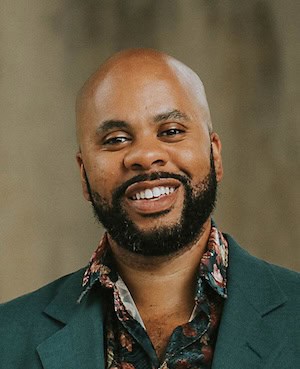Family Fixer Reaches the Breaking Point
‘I’m 45 and am simply exhausted’

The black sheep of the family has also accepted the role of family fixer. But at age 45, the fixer’s financial realities and alcoholic father have exploded the dynamic. It may be time to fix yourself, says advice columnist Eric Thomas.
Dear Eric:
I love my family. I went away as the gay black sheep but always have tried to be the one who gives back. I paid for college and a Ph.D. on my own steam (scholarships and three jobs). I have sent multiple gifts to everyone in the family over the years, despite my crushing student loan debt. I paid for my niece’s RN program after my brother abandoned her. I head home every holiday, give more cash, spend time.
Now, I’m at a breaking point. Over the past five years, my dad’s alcoholism has taken over. I’m 45 and am simply exhausted and want to start taking the holidays for myself, but it will devastate the family. He will not accept Alcoholics Anonymous or any help. He is a product of the 1950s, experienced trauma after his own father died by violent gun suicide when Dad was 12.
Giving them so much money and time has resulted in me not having enough for a down payment for my own home, despite being reasonably successful. But I’ve created these expectations, maybe because I wanted to be the healer in the group. How do I disentangle but be present, but let them know I can’t always be there?
– Healer
Dear Healer:
I say this with compassion: it’s time to stop trying to fix your family and heal yourself. You describe yourself as the gay black sheep, so it makes sense that you’d respond to feelings of rejection by trying to earn your family’s love through your achievements, and by giving them money and sacrificing yourself.
But, as you’re discovering, this behavior doesn’t fill up an emotional bank. It tosses time, money, and energy down a bottomless well.
Talking to a counselor who works with LGBTQ+ folks will give you the tools to separate what’s yours and what belongs to your family. In therapy, you can also practice having conversations that set better boundaries. This won’t be easy, and it won’t always feel good, but, with practice, you’ll get better at it.
Even though your father won’t go to Alcoholics Anonymous, look into Al-Anon (al-anon.org/) or SMART Recovery Family Groups (smartrecovery.org) for yourself. These groups can help you process your father’s alcoholism and the inherited trauma. Also, I recommend the book “Codependent No More” by Melody Battle.
In the short term, pick one boundary that you’re going to experiment with setting. Maybe it’s not giving out checks, maybe it’s missing a holiday. Imagine the worst response to setting that boundary and ask yourself “will that response, if it happens, destroy me or the family?” It won’t. Healthy boundaries help everyone. After you’ve imagined the worst, set the boundary and stick to it. You may get pushback, but you’ll also get a little bit of freedom.
 R. Eric Thomas (he/him) is a national bestselling author, playwright, and screenwriter. His accomplishments include “Eric Reads the News,” a daily humor column covering pop culture and politics, serving as the interim Prudie for the advice column “Dear Prudence,” and “Congratulations, The Best Is Over.” Send questions to R. Eric Thomas at eric@askingeric.com or P.O. Box 22474, Philadelphia, PA 19110. Follow him on Instagram and sign up for his weekly newsletter at rericthomas.com.
R. Eric Thomas (he/him) is a national bestselling author, playwright, and screenwriter. His accomplishments include “Eric Reads the News,” a daily humor column covering pop culture and politics, serving as the interim Prudie for the advice column “Dear Prudence,” and “Congratulations, The Best Is Over.” Send questions to R. Eric Thomas at eric@askingeric.com or P.O. Box 22474, Philadelphia, PA 19110. Follow him on Instagram and sign up for his weekly newsletter at rericthomas.com.
©2024 Tribune Content Agency, LLC.
Find more words of wisdom like a family fixer finding healing – from insensitive parents to a husband’s mid-life crisis, DNA surprises, and more – in the Boomer Advice for Life department.


